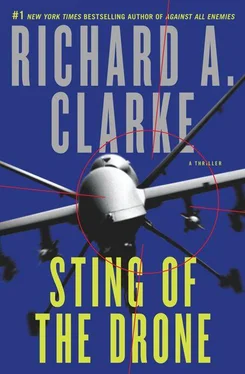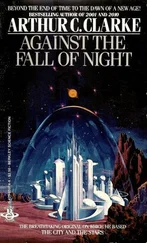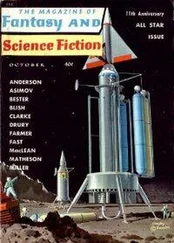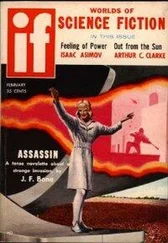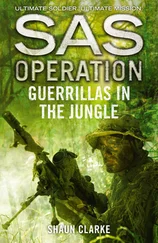The visual feed from the Myotis triangle, Bird Two, had looked blurred, incomprehensible shapes on the screen as the aircraft had hurtled toward the narrow laser beam projected from Bird One. Then the camera feed from Bird Two, the black triangle, had stopped.
“Target hit. Warhead ignited. No secondary. Fire seems contained,” Bruce reported into his mouthpiece after he turned his attention back to the image from Bird One.
“Fire alarm has gone off in the building, automatically signaling to the Feuer Brigade around the corner,” said a voice from Maryland.
“Zoom Bird One’s camera in on the room, please,” someone in Virginia said, and Bruce adjusted the view. “Thanks. Not much left there.”
Bruce switched the camera back to wide angle and the image on the screen showed the hotel guests filing out of the front door in orderly fashion, guided by hotel staff, as two fire trucks rolled to a stop at the curb.
“Congratulations. This has been a team effort, HUMINT, SIGINT, and the kinetic element, identifying and stopping an advanced plot.” The voice was from Washington. “You are all reminded that this was structured as a Special Op, so it would be completely deniable. No evidence of drone usage. Let’s keep it that way. No bragging. No spiking the football. No leaks.”
More fire trucks and ambulances appeared on the live image of the Palais projected on the screen.
Bruce felt Erik’s hand clamping on his shoulder. “Nice work, Major. Now let’s fly Bird One to the Safe House and call it a day.”
The small black oval stopped its hover, gained altitude quickly to four hundred meters, and headed out toward the Wiener Wald at the edge of the city. There, in a clearing on a wooded estate, a team waited for Bird One to gently set down on the grass. They would then pack it into a truck and drive it to Germany and a U.S. Air Force base.
The bird was on autopilot until it got near the Landing Zone. Then Bruce took control and, using a joystick in his right hand and a sliding throttle in his left, he delicately brought the aircraft down in the clearing for a soft impact touchdown. He had stopped listening in on the Kill Call conference bridge.
The voice from Maryland came over the speakers, “Wien Feuer Brigade Zwei commander reporting to his headquarters five bodies recovered, a few minor injuries from flying glass. Fire is out. He’s thinking someone placed a bomb in the bar.”
Sandra Vittonelli and Erik Parsons left Spook Ops and moved back to her glass-walled office just behind the row of pilots in the GCC Operations Room. Erik was seated on the couch looking out at the Ops Floor, at the images pouring in from above five countries. Sandra was getting two bottles of Pilsner Urquell from her mini fridge in the closet off her office.
“Well, you were right about Bruce,” she called out. “The first time we fly the new stealth, covert birds in a real operation and he did it like a pro. I just wish those new birds had longer loiter, longer range.” She looked at Erik, who did not appear to be listening to her. “Hey, Colonel, wake up. We just got Omar Nawarz, the head of the Qazzani narcoterrorist group’s European operations, plus three of his lieutenants.”
Sandra was looking for the beer bottle opener inside the cooler. “And, while I am not supposed to tell you this, the reason for this as a Special Op was that we had a sensitive HUMINT source inside al Qaeda, one we could not share with the Austrians or anybody else. So we could not tell the Austrians to pick these guys up. The Stapo would want to know why, they’d want to see some evidence.”
She had popped the beers and was walking back into her office. “If we told the truth, that these guys were going to bomb subway systems in Vienna and Germany, that word would leak out fast. And our guy on the inside in AQ would get discovered and killed. So, as far as the Austrians will know, this was a bomb planted by a rival drug gang.
“Hey, you listening, Colonel? We just stopped another 7/7 attack, only bigger. Well done.” She thrust out her right arm toward Erik, with the open bottle of Pilsner.
Erik did not take the beer. “NSA said the fire chief reported finding five bodies. Who was number five?”
MONDAY, JULY 13
THE CITY OF DERA GHAZI KHAN
THE PUNJAB, PAKISTAN
He gave up and dismounted from the Kawasaki. There were just too many people walking in the street to try to drive. Sunset and Iftar had been four hours ago and now, with the heat breaking, everyone seemed to have left their homes and gone for a walk to the market street. After living for years in Canada, surviving this kind of heat was not something that came easily to him. It had been 42 degrees Celsius during the day as he had driven down from Multan. Someday, they said, there would be the new M5 motorway connecting to Multan. But someday had not come.
And so he had dodged trucks in the heat for hours. He knew that Dera Ghazi Khan was now a city of more than two million people, but it was not exactly Karachi or Islamabad. It was not even Multan. Of course, that is exactly why the old man had chosen it to be his latest base of operation. Karachi had become too violent, even for him, and there were too many spies in Islamabad. But here in the heart of the Punjab, white spies stood out.
He had never been to this city, although his father had joked that he had named his son after the town. Although his father had enjoyed a Canadian and then a European lifestyle for years, this kind of place was where his roots were. It was his father who brought him here now, his late father. The thought of him brought waves of emotion, the joy he knew when they were together, the sadness that he was gone, the anger at those who had killed him in Vienna. And he now knew who had killed his father.
* * *
The fast would not resume until sunrise. He pushed the bike past groups of young men walking together in the street, taunting each other and laughing. Some families strolled together, the father in the lead. Merchants were reopening their stalls, filled with what they had sold for centuries: spices, incense, and rugs. The street had been closed to vehicles for the evening hours during Ramadan. Stalls and shops on the crowded street sold the twenty-first century additions, mobile phones, tablets, DVDs, T-shirts. One stand sold both leather-bound Korans and cloned Xbox video games, two reflections of Pakistan’s soul.
To snare the nocturnal Ramadan walkers, vendors were setting up outside of their shops with hookahs, sweets, figs, dates, and chai. Ghazi Faqir Nawarz ignored their beseeching and pushed the bike forward through the crowd. They had sent him convoluted directions, but he also had his handheld GPS. The coordinates read 30°3’27.61" N and 70°38’22.66" E. He was close.
After he passed the third mobile phone store on the right side of the street, he saw the alley and the boy, as he had been told he would. Just inside the alley, he removed his pack from the bike and let the boy push the Kawasaki into the alley. From a chain hanging under his shirt, the boy produced a key, opened a wooden hatch door in the wall, crouched, and disappeared into the hole in the wall, pushing the bike ahead of him. In seconds, he was back in the alley, relocking the hatch. Then he spoke for the first time to Ghazi, “Up that stair, at the top.” He turned and walked back to resume his place at the head of the alley.
The alley was narrow, all the more so for the bags and barrels. The stair was metal and attached to the outside of a building halfway down the passageway. As he climbed the steps, Ghazi saw that the bolts were showing signs of detaching themselves from the stucco wall some day soon. The door on the second floor landing was locked. At the third floor, the door was already open and two men stood just inside. They exchanged mumbled Salams. The first man patted Ghazi down, then the second grunted out an order to follow him, “ Mere saath aaiyd, ” and then led the way to an interior door off the dimly lit corridor.
Читать дальше
